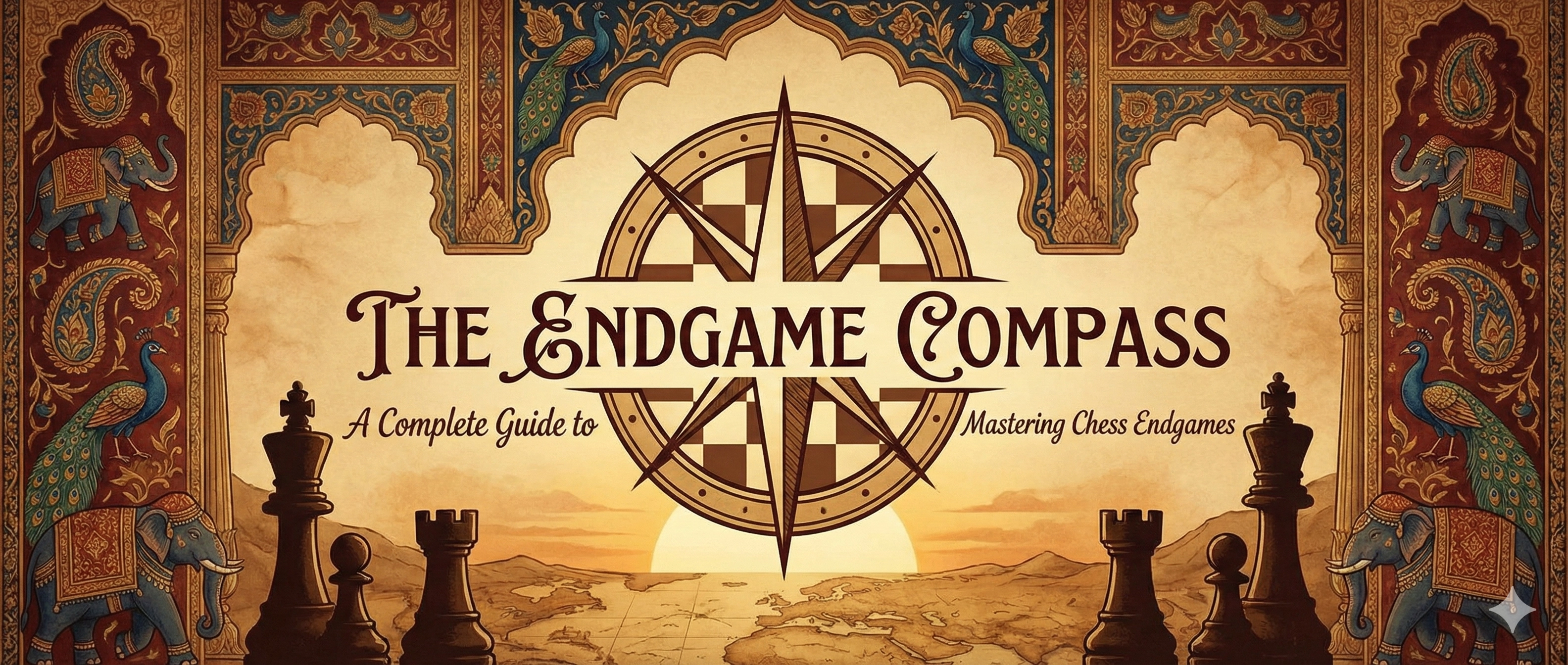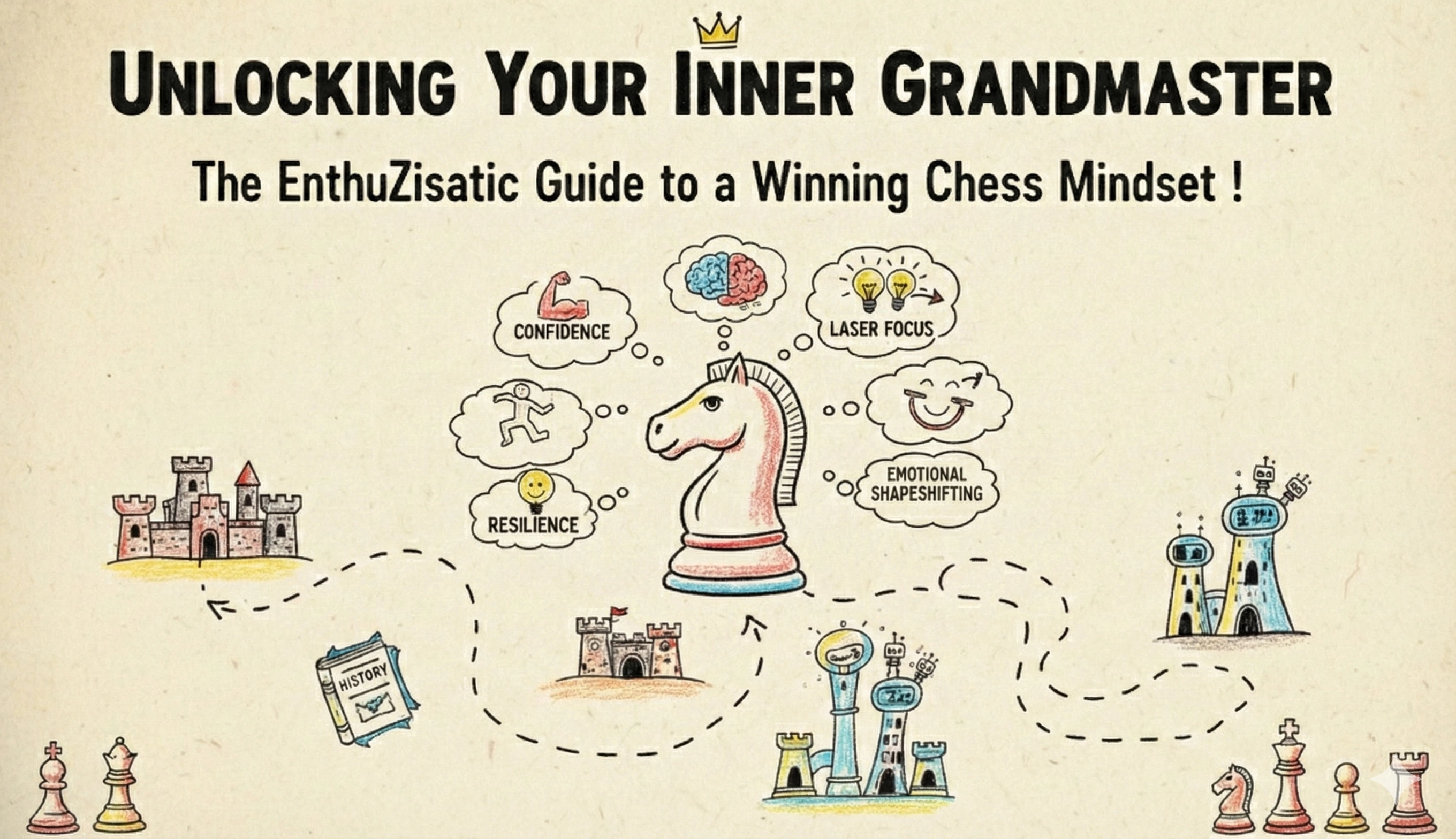You wouldn't think of chess as a career that pays your bills, but Chess went from being just an old game with a rich history to a serious, hard-core career choice in the late 1800s. Want to know a fun fact? The current world chess champion GM Magnus Carlsen has a net worth of $8 million dollars.
This might make the impression that only the winner gets paid, but that isn't the case. The other chess grandmasters do pretty well themselves too. Hikaru Nakamura, Sergey Karjakin, Fabiano Caruana, Anish Giri, Vladimir Kramnik, Veselin Topalov, Alexander Grischuk, Boris Gelfand, Levon Aronian, and Wesley so also earn upwards of $500,000 in tournaments each year.
Even if you don't score a single point, you can still walk away with a reasonable amount of money. But this wasn't always the case; chess players in the past haven't been so lucky with the reward they earned besides being called the champion.
So, let us trace our steps back to the first-ever championship match.
- A Timeline and Rewards of Chess Tournaments
- 1. 1886, William Steinitz V.S. Johannes Zukertort
- 2. 1891, William Steinitz V.S. Isidor Gunsberg
- 3. 1921, José Raúl Capablanca V.S. Emanuel Lasker
- 4. 1927, Alexander Alekhine V.S. José Raúl Capablanca
- 5. 1935, Max Euwe V.S. Alexander Alekhine
- 6. 1966, Tigran Petrosian V.S. Boris Spassky
- 7. 1972, Bobby Fischer V.S. Boris Spassky
- 8. 1978, Anatoly Karpov V.S. Viktor Korchnoi
- 9. 1990, Garry Kasparov V.S. Anatoly Karpov
- 10. 1995, Garry Kasparov V.S. Viswanathan Anand
- 11. 2000, Garry Kasparov V.S. Vladimir Kramnik
- 12. 2006, Vladimir Kramnik V.S. Veselin Topalov
- 13. 2008, Vladimir Kramnik V.S. Vishwanathan Anand
- 14. 2010, Vishwanathan Anand V.S. Veselin Topalov
- 15. 2013, Magnus Carlsen V.S. Viswanathan Anand
- 16. Different Ways to Earn Money Playing Chess
- Conclusion
- FAQs
A Timeline and Rewards of Chess Tournaments
The first-ever chess tournament was held back in the late 1800s, so let's start from this point and trace our way back from there to the 2000s. But we will only talk about the flagship moments in tournament history because there are way too many tournaments to mention here.
1. 1886, William Steinitz V.S. Johannes Zukertort
Total prize £ 800

The chess match took place in the USA, in New Orleans. William Steinitz won this tournament with 10 wins, 5 losses, and 5 draws, earning £ 800.
2. 1891, William Steinitz V.S. Isidor Gunsberg
The final chess match of the tournament took place in New York City, USA, with a total prize of $3,000. William Steinitz emerged victorious with 6 wins, 4 losses, and 9 draws, claiming $2,000, while Isidor Gunsberg took home $1,000.
3. 1921, José Raúl Capablanca V.S. Emanuel Lasker
Total prize $25,000

This chess match was a best-of 24 format, held in Havana, Cuba. José Raúl Capablanca won this incredible match with 4 wins, 0 losses, and 10 draws and only received $12,000. But, to let you know, Emanuel Lasker walked away with $13,000 and resigned after 14 games.
4. 1927, Alexander Alekhine V.S. José Raúl Capablanca
Total prize $10,000

It was a simple first to win 6 formats, held in Buenos Aires, Argentina. Alexander Alekhine won the match with 6 wins 3losses and 25 draws, but José Raúl Capablanca received a $2,000 fee for his appearance.
5. 1935, Max Euwe V.S. Alexander Alekhine
Total prize $10,000 It was a first to 6 wins and 15 points held in the Netherlands. Max Euwe won the tournament with 9 wins, 8 losses, and 13 draws and bagged $10,000 all for himself. This was the Pre-FIDE Championship period, and this era ended in 1946.
Alexander Alekhine was still a champion in 1946 when he died, after which the FIDE started organizing the chess championship.
And in the FIDE Words Championships that started in 1948, we will choose our moment from 1966. The Soviet Union dominated this era of chess, so most top players in this list belong to the Soviet Union.
6. 1966, Tigran Petrosian V.S. Boris Spassky
Total prize $2000 This was a best of 24 showdowns held in Moscow. Tigran Petrosian was the winner of this battle and took home the $2000 prize money.
7. 1972, Bobby Fischer V.S. Boris Spassky
Total prize $250,000 (The point where prize money starts escalating.) Bobby Fischer is a well-known name in chess and brought immense attention to the game, which also brought in a lot of money.
This chess match was held in Reykjavík, Iceland, and was televised worldwide. And the brilliant Bobby Fischer demanded and received a 30% cut of the television rights.
Of course, he also won the match with 7 wins, 3 losses, and 11 draws, receiving $156,250 as the winners cut.
8. 1978, Anatoly Karpov V.S. Viktor Korchnoi
Total prize $560,000 The chess match was a best of 24 formats, held in Baguio, Philippines. Anatoly Karpov won the match with 6 wins, 5 losses, and 21 draws, and he took home $350,000 home with him.
9. 1990, Garry Kasparov V.S. Anatoly Karpov
Total prize $3 Million Dollars The chess matches were held in USA and France. Garry Kasparov took home a load of $1.875 Million dollars from the winner share by 4 wins, 3 losses, and 17 draws in his match against Karpov.
10. 1995, Garry Kasparov V.S. Viswanathan Anand
Total prize $1.5 Million dollars In 1993, Kasparov and Short split form the FIDE and played them under a different association, so FIDE stripped Kasparov of his title.
Beginning with the FIDE World Chess Championship 1996, FIDE changed its rules. The chess match between Garry Kasparov and Vishwanathan Anand was set in the new FIDE, and Kasparov won it.
He took $1 Million dollars for beating Anand with 4 wins, 1 loss, and 13 draws.
11. 2000, Garry Kasparov V.S. Vladimir Kramnik
Total prize $2 Million dollars
This was a best of 16 tournaments held in London, United Kingdom. Vladimir Kramnik shocked the world by beating Kasparov and winning $1.33 Million with 2 wins, 0 Losses, and 13 Draws.
12. 2006, Vladimir Kramnik V.S. Veselin Topalov
Total prize $1 Million dollars Kramnik won the chess match on a tiebreaker. The prize was split evenly between both of them with $500,000 each.
13. 2008, Vladimir Kramnik V.S. Vishwanathan Anand
Total prize $1.9 Million dollars Anand grabbed the title by 3 wins, 1 loss, and 7 draws, but they took home $950,000 a share.
14. 2010, Vishwanathan Anand V.S. Veselin Topalov
Total prize $2.8 Million dollars Their chess match was a best of 12 and tiebreaker format, held in Bulgaria. Vishwanathan Anand defended his title with 3 wins, 2 losses, and 7 draws and took home a $1.68 Million dollars champion's share.
15. 2013, Magnus Carlsen V.S. Viswanathan Anand
Total prize $2.5 Million dollars
This chess match was a best of 12 with a tiebreaker, held in Chennai, India. Carlsen won his bout with 3 wins, 0 losses, and 7 draws and bagged $1.5 Million dollars. All this talk about matches throughout history might make it seem like you can only earn through participating in tournaments.
Don't worry; that's not the case today. There are several other ways to earn a good living with chess.
This chess match was a best of 12 with a tiebreaker, held in Chennai, India. Carlsen won his bout with 3 wins, 0 losses, and 7 draws and bagged $1.5 Million dollars.
All this talk about matches throughout history might make it seem like you can only earn through participating in tournaments. Don't worry; that's not the case today. There are several other ways to earn a good living with chess.
16. Different Ways to Earn Money Playing Chess
In the 21st century, there are various avenues for chess player to exercise their abilities and earn money. You could be Playing, coaching, streaming, running an academy, writing, or creating content on chess and whatnot.
Chess players can establish themselves as industry experts or businesses to generate revenue.
Playing chess

As we saw so vividly in the section before, players earn a very promising keep for themselves when they play in professional or tournament sessions. But you can only do this if you are an elite grandmaster.
Apart from playing, you will need someone to sponsor. But it isn't easy to earn much money by playing if you are not at a grandmaster level. The next option might be up your alley.
Coaching other people
Coaching is by far the best way to earn your keep as a chess player. You can make a good living by hosting live online chess coaching sessions.
The main reason for this success is the famous Netflix show, The Queens Gambit, and massive attention to online learning, thanks to the internet. You just can't beat the feeling of being able to enjoy things from the comfort of your home.

You can get started by creating free tutorials, which are helpful to a certain degree. But nothing beats the feeling of live interaction with your tutor. According to the FIDE rating, people with a rating below 1600 can charge $5 to $10 an hour; if you happen to be a little decent with a rating between 2500-and 2600, you can charge $30 to $100. And if you belong to the top cream layer of rating above 2700 and above, you can charge upwards of $100 per hour.
If these seem too much for you, you can choose other options that don't require you to have any authority or a FIDE rating in 2022. You can start streaming, be a chess writer, sell chess products, create social media content, create a website or act as a consultant to earn some extra income.


Conclusion
So you see, a chess player can make from a couple of thousand bucks to a whopping $50 Million dollars. All you have to do is be good at the game. And Maybe not in the early 20th century, but in the 21st century, chess can be a legitimate career option for many people.
That includes you too, and we know chess is competitive sport, but it has major benefits and things you can adopt in your life, even if you don't pursue it to be a professional player. But you never know; you could be the one Magnus Carlsen faces next.
FAQs
1) How much do chess pros get paid?
While most pro chess players aren't that rich, but elite grandmasters can earn up to $100K from a chess game. Magnus Carlsen has a net worth of at least $25-$30 Million dollars, and Vishwanathan Anand has around $15 Million dollars.
In contrast, Hikaru Nakamura, a twitch streamer and a GM, has about $50 Million dollars. So there isn't any boundary to what you or any pro can earn.
2) Who is the wealthiest chess player?
Hikaru Nakamura is the wealthiest chess player, with a net worth of $50 Million dollars. He has earned this much through winning tournaments, writing books, and making a decent salary from the USA since he represents them.
3) What is the average salary of a chess player in 2022?
The average earning of a Grandmaster is $3500/month, and if the grandmaster happens to be a coach, they make around $4800/month.






Comments